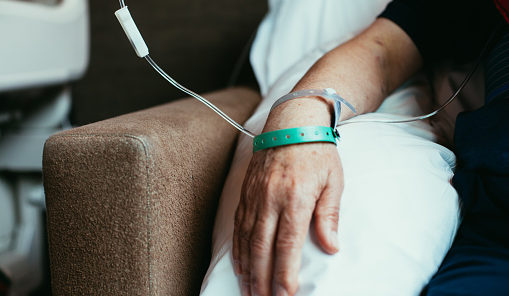Cancer patients—and lung cancer patients in particular—have a greater risk for COVID-19 mortality compared to the general population, so it’s important to minimize their risk of exposure. The pandemic has changed the way cancer care is delivered. A study evaluating the effect this has had on lung cancer care found that more than half of patients experienced changes in their cancer care.
The study included non-small cell lung cancer (NSCLC) and small cell lung cancer (SCLC) patients seen at the thoracic oncology clinic at the McGill University Health Centre from March 2 through May 30; COVID-19 patients were excluded. Patients’ treatment plans were evaluated to ascertain changes and determine which, if any, were directly attributable to the pandemic.
Two hundred eighty-nine patients were identified and assessed, and 14 were excluded due to other tumor histology or a positive COVID-19 test, leaving 275 for final analysis. Of these patients, 211 were receiving active treatment. Of the 275 total patients, 238 (86.5%) had NSCLC. Nearly two-thirds of these patients (n=172; 62.5%) had advanced disease. There were 37 SCLC patients (13.5%), of whom 11 (4%) had advanced disease.
In total, 121 patients (57%) experienced at least one change in their treatment plan “as a direct result of the COVID-19 pandemic,” the study authors discovered; 19 patients (9%) had more than one change to their treatment plan. The most common change in treatment was delayed palliative treatment (n=48; 39.7%); palliative chemotherapy was resumed after a mean 36 days. Palliative treatment was terminated in 14.9% of cases (n=18). About a quarter of treatment changes (n=32; 26.4%) were in dosing and scheduling. Adjuvant treatment was stopped and delayed in four (3.3%) and three (2.5%) patients, respectively; the mean length of delay was 42 days. Surveillance visits were deferred or cancelled in eight patients (6.6%).
The study was published in JAMA Oncology.
“Given preliminary findings that active cancer treatment is not associated with increased complications from COVID-19, lung cancer treatments and surveillance visits should proceed with caution, and clinicians should proceed with evidence-based care provision in lung cancer. Our study reinforces that all oncology clinics should track these changes occurring in cancer care because it will become important to evaluate the effect of these changes on clinical outcomes,” the researchers concluded.
Credit: Original article published here.









